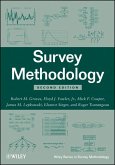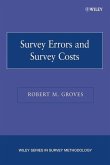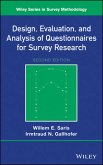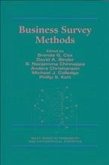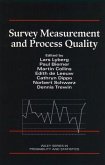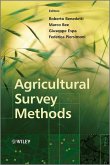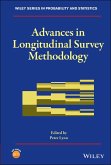A complete and comprehensive collaboration providing insight on future approaches to telephone survey methodology Over the past fifteen years, advances in technology have transformed the field of survey methodology, from how interviews are conducted to the management and analysis of compiled data. Advances in Telephone Survey Methodology is an all--encompassing and authoritative resource that presents a theoretical, methodological, and statistical treatment of current practices while also establishing a discussion on how state--of--the--art developments in telecommunications have and will continue to revolutionize the telephone survey process. Seventy--five prominent international researchers and practitioners from government, academic, and private sectors have collaborated on this pioneering volume to discuss basic survey techniques and introduce the future directions of the telephone survey. Concepts and findings are organized in four parts--sampling and estimation, data collection, operations, and nonresponse--equipping the reader with the needed practical applications to approach issues such as choice of target population, sample design, questionnaire construction, interviewing training, and measurement error. The book also introduces important topics that have been overlooked in previous literature, including: * The impact of mobile telephones on telephone surveys and the rising presence of mobile--only households worldwide * The design and construction of questionnaires using Computer Assisted Telephone Interviewing (CATI) software * The emerging use of wireless communication and Voice over Internet Protocol (VoIP) versus the telephone * Methods for measuring and improving interviewer performance and productivity * Privacy, confidentiality, and respondent burden as main factors in telephone survey nonresponse * Procedures for the adjustment of nonresponse in telephone surveys * In--depth reviews of the literature presented along with a full bibliography, assembled from references throughout the world Advances in Telephone Survey Methodology is an indispensable reference for survey researchers and practitioners in almost any discipline involving research methods such as sociology, social psychology, survey methodology, and statistics. This book also serves as an excellent text for courses and seminars on survey methods at the undergraduate and graduate levels.
Dieser Download kann aus rechtlichen Gründen nur mit Rechnungsadresse in A, B, BG, CY, CZ, D, DK, EW, E, FIN, F, GR, HR, H, IRL, I, LT, L, LR, M, NL, PL, P, R, S, SLO, SK ausgeliefert werden.



